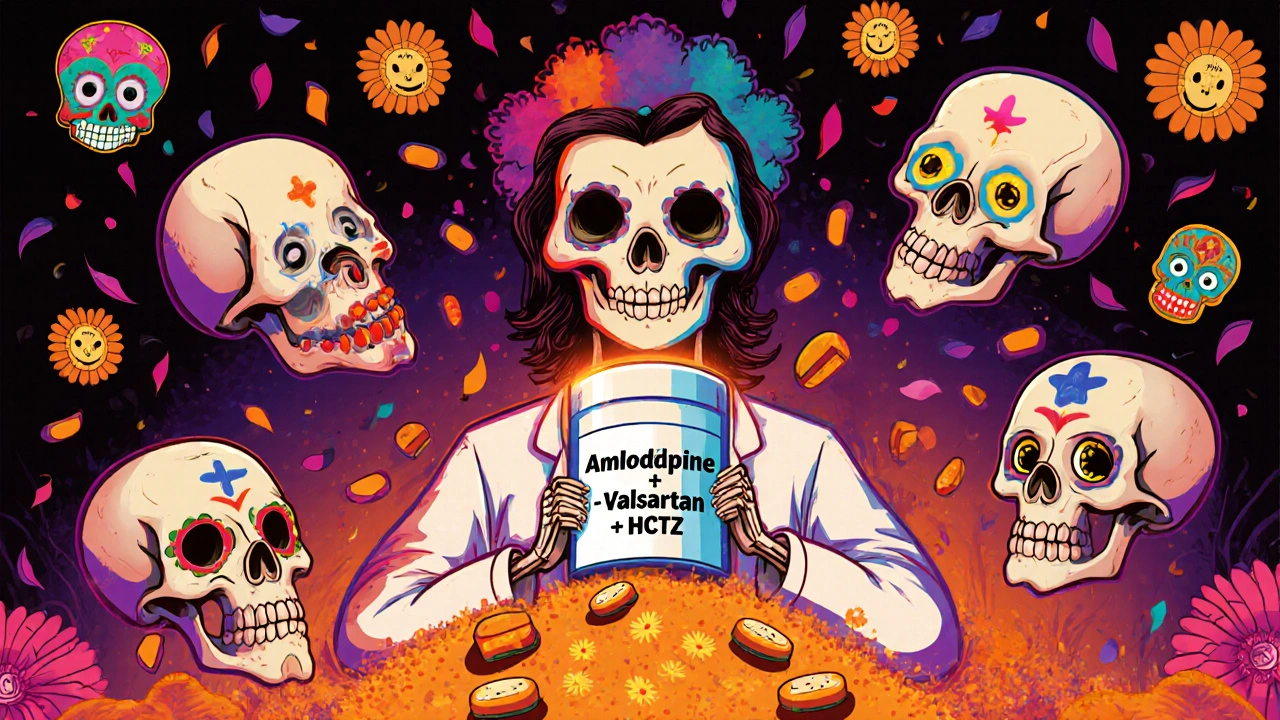Combination Blood Pressure Meds: What Works, What to Watch For
When your blood pressure won’t stay down with just one pill, doctors often turn to combination blood pressure meds, a single pill that contains two different types of blood pressure-lowering drugs. Also known as fixed-dose combinations, these pills are designed to hit high blood pressure from more than one angle—making them more effective than either drug alone.
These combinations usually pair a diuretic like hydrochlorothiazide with an ACE inhibitor, ARB, calcium channel blocker, or beta blocker. Why? Because each class works differently: diuretics flush out salt and water, ACE inhibitors relax blood vessels, calcium channel blockers slow heart rate and widen arteries, and beta blockers reduce the heart’s workload. Together, they often bring numbers down faster and more steadily. Studies show patients on combination pills are more likely to stick with their treatment because they take fewer pills each day. That’s a big deal—missed doses are one of the top reasons blood pressure stays high.
But they’re not one-size-fits-all. Some combinations work better for older adults, others for people with diabetes or kidney disease. For example, if you have diabetes, a combo with an ACE inhibitor or ARB is often preferred because it protects your kidneys. If you’re African American, a calcium channel blocker plus a diuretic tends to work better than ACE inhibitors alone. And if you’re prone to coughing from ACE inhibitors, switching to an ARB combo avoids that side effect. The key is matching the combo to your body, not just your numbers.
Side effects can pile up too. Dizziness, fatigue, low potassium, or swelling in the ankles are common. Some people get a dry cough with ACE inhibitors. Others feel lightheaded when standing up fast. It’s not always the drug itself—it’s how the two interact. That’s why your doctor will check your kidney function and electrolytes after starting a combo. If you’re on a combo and suddenly feel off, don’t guess. Talk to your pharmacist or doctor. They can tell you if it’s normal or if you need a tweak.
And don’t assume all combos are the same. Brands like Amturnide, Exforge, and Benicar HCT all mix different drugs in different doses. Some are generic, some aren’t. Price can vary wildly. A generic combo of lisinopril and hydrochlorothiazide might cost under $10 a month. A branded version could run $100 or more. Ask your doctor if a generic combo is right for you. It’s often just as safe and effective.
What you’ll find below are real, practical guides from people who’ve been there. You’ll see how combination blood pressure meds stack up against single drugs, what side effects to expect, how to tell if your combo is working, and how to avoid dangerous interactions with other meds like NSAIDs or potassium supplements. Some posts even break down which combos are best for specific conditions—like kidney disease, heart failure, or obesity-related hypertension. There’s no fluff. Just clear, tested info to help you understand your treatment and ask the right questions.

